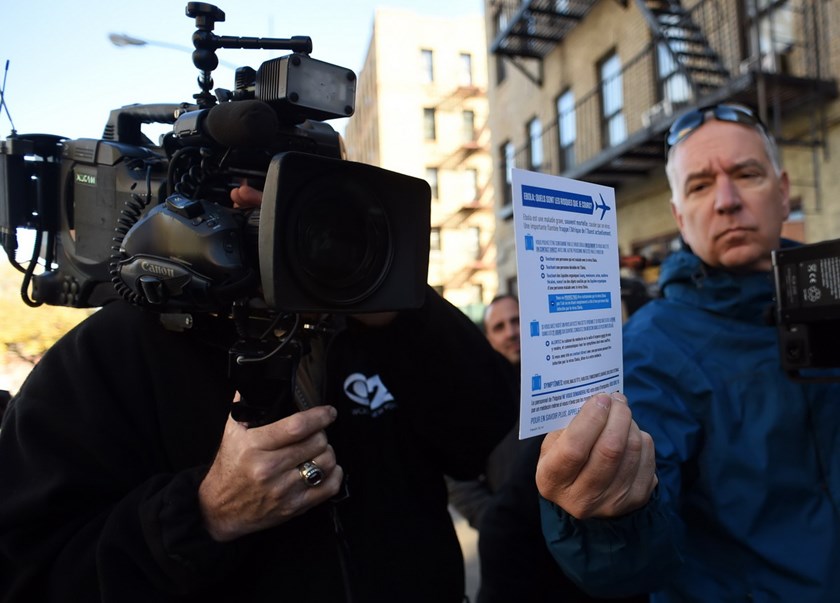
Swiss regulators announced they would allow trials of an experimental vaccine made by Britain's GlaxoSmithKine, ...
Ebola vaccine trials are set to start in Switzerland this week after receiving the green light from the country's authorities, the World Health Organization said Tuesday.
Swiss regulators announced they would allow trials of an experimental vaccine made by Britain's GlaxoSmithKine, and tests on some 120 individuals were set to get under way at the CHUV hospital in Lausanne this week, the WHO said.
"This marks the latest step towards bringing safe and effective Ebola vaccines for testing and implementation as quickly as possible," the UN's health agency said in a statement.
There is no licensed treatment or vaccine for the deadly Ebola virus, which has killed nearly 5,000 people in the outbreak centered in west Africa.
The experimental GSK vaccine is one of two considered particularly promising by WHO.
Called ChAd3, it is based on a genetically modified chimpanzee adenovirus and trials have already begun in Mali, Britain and the United States, the WHO said.
"The trial will test the safety of the vaccine and its capacity to induce an immune response," it said.
It added that results of the trials in Switzerland and elsewhere will "provide the basis for planning subsequent trials involving several thousand participants, and for choosing vaccine dose-level for efficacy trials".
A second experimental vaccine being fast-tracked on the WHO's recommendation, Canadian-discovered rVSV, is set to soon start trials at the University Hospital of Geneva.
Trials of that potential vaccine have already begun in the United States and are also set to soon start in Germany, Gabon and Kenya.
"If shown to be safe and effective, either of the vaccines could be scaled up for production during the first quarter of next year, with millions of doses produced for wide distribution in high-risk countries," WHO assistant director general Marie-Paule Kieny said in the statement.

 Previous page
Previous page Back to top
Back to top







